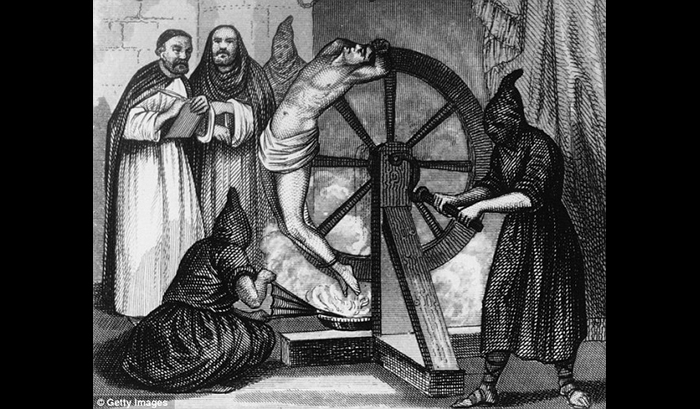Dateline Jerusalem — Jews throughout the world will be observing the holiest day of the year, Yom Kippur, Day of Atonement, this coming week. It occurs 10 days after the beginning of the Jewish New Year, Rosh Hashana, when G-d inscribes each person’s fate for the coming year in the Book of Life. On Yom Kippur the verdict is sealed.
Therefore, during these 10 days between Rosh Hashana and Yom Kippur, Jews try to change their behavior and seek forgiveness for the transgressions they have done against G-d and their fellow man. Forgiveness is also achieved through prayer, repentance, and charity. On Yom Kippur, the 25- hour night and day is spent fasting with no food or water, spending hours in synagogue praying for G-d’s forgiveness and for a good year.
Throughout the world, Jews observe Yom Kippur with different customs. For some Jews oppressed by the Inquisition, the Holocaust, and those living in countries where being Jewish risked their lives, Jews have had to observe Yom Kippur in non-traditional ways. In the time of the Spanish Inquisition, when Jews were forced to leave Spain, convert to Catholicism or be tortured and killed, many Spanish Jews practiced Judaism in secret. These crypto-Jews, or Marranos, did not pray all day. They would pray for only a few hours in basements and hidden rooms. Because they fasted on Yom Kippur, they would pretend that they had eaten by walking outside with a toothpick in their mouths to fool their Spanish oppressors. Sometimes the Spanish government and the Church sent out spies to learn if Jews were praying or celebrating holidays like Yom Kippur. If they suspected the Jews not to be true Conversos (those converted from Judaism to Catholicism), they would force suspected Jews to eat pork in public, especially on Yom Kippur.
Which Can/Should You Do?
During the Holocaust, there was a debate as to whether or not to work or fast on Yom Kippur. Jewish law permits eating, drinking, and working on Yom Kippur in order to save one’s life. Because the Nazis outlawed all public observances on Yom Kippur and other holidays, Jewish shopkeepers pretended their shops were open for business. Salesmen were replaced by women. They actually did not sell anything. Instead, they let people take merchandise without paying for it — on an honor system. No money ever was exchanged. In Hungary, the German commanding officer warned Jews that anyone who fasted would be executed by a firing squad. The Germans distributed meager food rations. Some Jews pretended to consume them. Instead, they spilled coffee into the mud and hid the stale bread in their pockets for consumption in breaking the fast when the holiday was over. Many felt that the meager rations were like fasting for Yom Kippur all year round. Others, however, did not fast because they felt it was dangerous to do so. As for praying, most recited the prayers by heart.
Observing Yom Kippur is not easy. For Jews of Afghanistan, living in a devoutly Islamic nation since the seventh century, is difficult. However, after the Soviet occupation of the 1980s and the Taliban’s regime between 1996-2001, most Jewish Afghanis moved to Israel or to neighboring former Soviet republics. Only one man remained. He guarded Kabul’s empty synagogue while his wife and family left for Israel. Not only was the synagogue devoid of people, the Ark which faced Jerusalem had its Torah scroll stolen by the Taliban. The sole Afghani Jew continued to pray there without a Torah. With special permission from a neighboring Uzbekistan rabbi, he slaughtered his own meat in the kosher way. There are many legends about Afghani Jews. Allegedly the Pashtuns, one of the main ethnic groups in Afghanistan, are descended from a tribe of Israel. The name Afghanistan allegedly comes from Afghana, a grandson of King Saul, first king of the ancient Kingdom of Israel.
For the Cochin Jews of India, on Rosh Hashana, women wear red and white clothing, but on Yom Kippur they only wear white. On Sukkot they wear green, on Hoshana Rabbah they return to white, but on Simchat Torah they wear red and other bright colors. Most of the Jewish Cochin Indian community now lives in Israel. The State of Israel has definitely become an ingathering of exiles. It represents the fulfillment of Biblical prophecy. Israel once again is the physical and spiritual center of the Jewish people, where they can function as a Jewish nation to ensure their very existence and survival.
Everything Stops
In Israel, Yom Kippur is a legal holiday. There are no radio or TV broadcasts, no public transportation, and even the airports and businesses are shut down. Streets are mostly empty, no one driving around. Even secular Jews attend synagogue and fast on this day. Like the Cochin, many Israelis dress in white clothes for Yom Kippur because white symbolizes purity. We are reminded of the promise that our sins should be made as white as snow. It is not mandatory to wear white. However, many Jews throughout the world do so. In Leviticus, the Torah commands us not to work on Yom Kippur and to afflict our souls. To afflict our souls on Yom Kippur, Jews abstain from food and drink, abstain from marital relations, and do not bathe or wash or anoint our bodies with oils or perfumes. We are forbidden to wear leather shoes because in ancient times leather shoes were considered a luxury and a comfort. Many rabbis do not allow wearing rubber Crocs because they allegedly provide too much comfort when we are supposed to be afflicting ourselves. We also do not wear leather shoes because leather reminds us of the primordial sin of Adam and Eve. Gold is not worn because it reminds us of the sin of the Golden Calf.
Tzom Kal, May you have an easy fast. Gmar Chatima Tova, May you merit a final signature for life.
L’hitraot. Shachar

